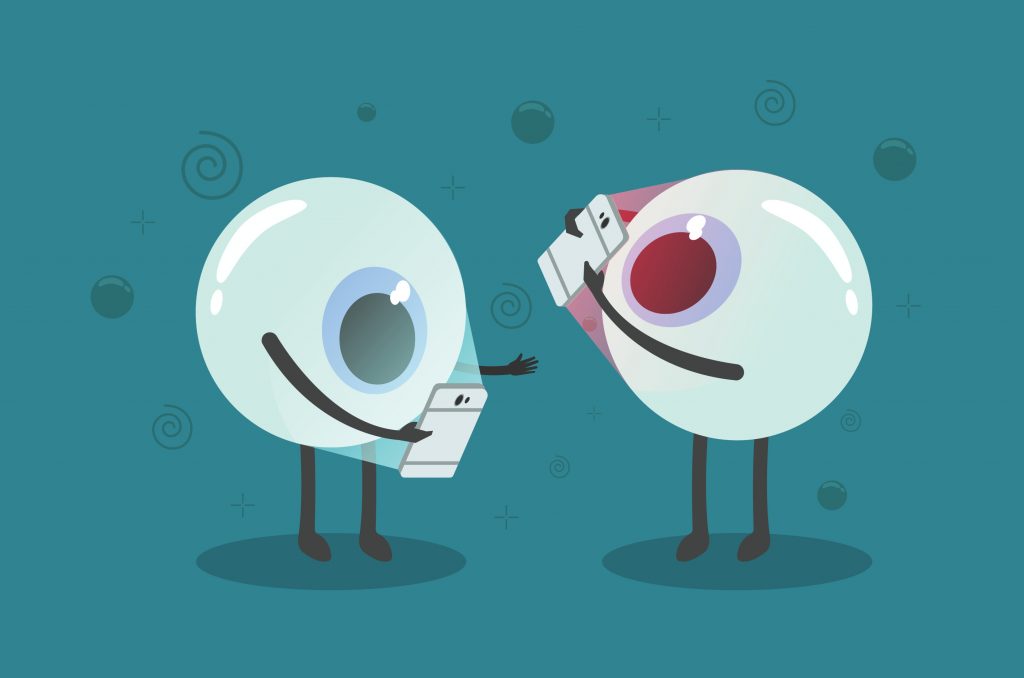Whether you’re worried about blue light or dealing with sore, tired eyes at the end of each workday, there is no question that devices have an impact on our eyes. March is Workplace Eye Wellness Month, making it the perfect time to implement changes that mitigate the impact of extended screen time.
reducing digital eye strain
When we spend most of the day focused on a screen, we give our eyes more of a workout. That strain can be compounded by constantly switching between screens and papers while we work.“Your blink rate tends to go down when you’re focusing,” SLUCare ophthalmologist Dr. Gabriela Espinoza explains. “This causes your eyes to dry out faster, and they may feel sore and tired.” Eye fatigue can lead to burning eyes, blurred or double vision, headaches and more.
While eye strain isn’t linked to more serious eye health concerns, it can still be aggravating and unpleasant. Here are some steps you can take to give your eyes a break.
- Optimize your environment: Set up your work station with the screen at least an arm’s length away and oriented so you are looking slightly down. Espinoza says that it’s important to have good lighting as glare also can be problematic. “If you have a fan, position it so it doesn’t point toward your face,” she adds. “The air can cause more dryness and irritation.”
- 20/20/20: This requires looking away from your screen at something 20 feet away for 20 seconds every 20 minutes. At the very least, Espinoza suggests taking a break every hour to blink and stop focusing.
- Adjust the brightness: Match your screen’s brightness to the surroundings.
- Magnify the screen: The bigger the font you’re reading, the less work your eyes have to do to focus. Espinoza also suggests avoiding low-contrast color schemes when it comes to your text and background.
- Eye drops: “Using artificial tears throughout the day can help soothe your eyes, even if you don’t feel that they are dry,” Espinoza notes.
- Tinted glasses: Computer glasses with yellow tinted lenses increase contrast and reduce digital eye strain.
breaking down blue light
Blue light has been a hot topic in eye health for a few years. The term refers to light on the visible spectrum that has shorter wavelengths and more energy. The debate is whether it can have an impact on vision, especially from devices, and products like blue light filtering glasses have become more common. However, there is no evidence to suggest that blue light is damaging to human eyes. People are actually exposed to more blue light from the sun than devices.
“For daytime work, blue light will not have an impact,” Espinoza says. “There are concerns about how looking at screens close to bedtime can impact our sleep patterns.” During the day, blue wavelengths boost attention, reaction times and mood. At night, however, it can disrupt the production of melatonin, a hormone linked to sleep. A study done by Harvard Medical School compared the effects of exposure to blue light to exposure to green light of comparable brightness. The blue light suppressed melatonin for about twice as long as the green light and impacted circadian rhythms twice as much. Espinoza suggests limiting nighttime screen use or using a night mode setting that filters blue light.
Additional source: Harvard Medical School
